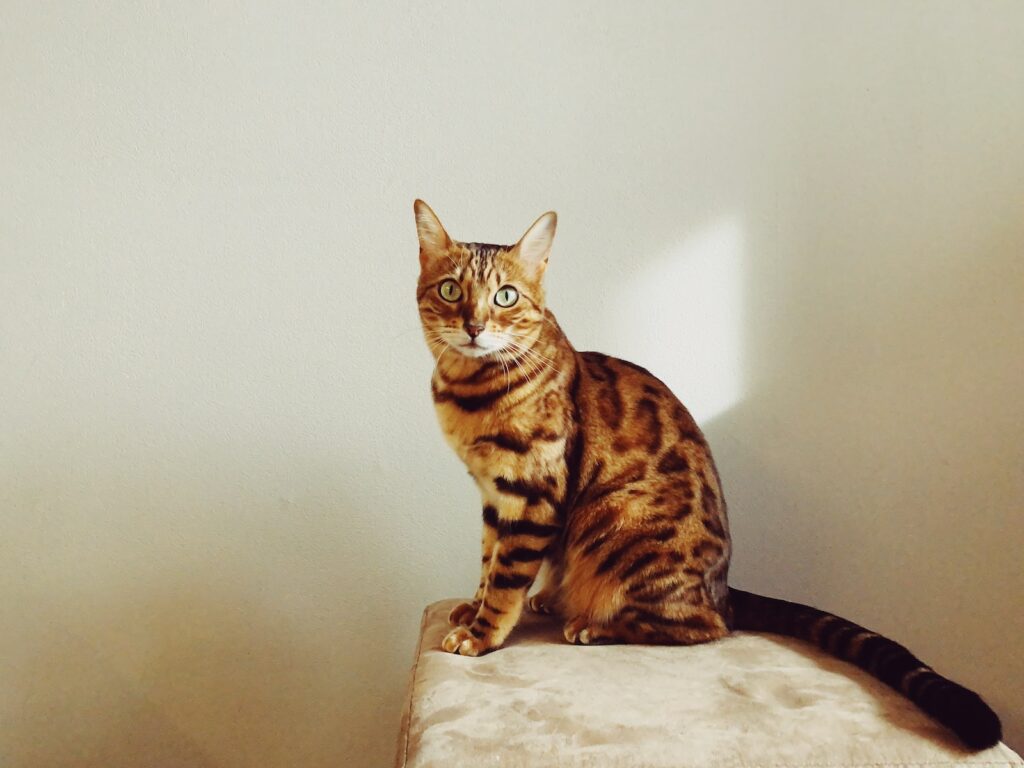Can Cats Eat Cauliflower? — Yes, They Can
Cauliflower is a nutritious vegetable that can be safely consumed by cats. However, it is important to introduce cauliflower into your cat’s diet gradually and in moderation.
Can Kittens Eat Cauliflower?
Yes, kittens can eat cauliflower as well. But just like adult cats, it should be given in moderation and introduced slowly into their diet.
Things to consider when feeding cauliflower to kittens?
When feeding cauliflower to kittens, it is important to ensure that it is cooked thoroughly and mashed to make it easier for them to consume. Additionally, always monitor their reaction and digestion after introducing new foods.
Nutritional Benefits of Cauliflower for Cats — Why Cauliflower is Good for Cats?
Vitamin C
Cauliflower contains vitamin C, which helps support your cat’s immune system, promoting a healthy and strong body defense against diseases.
Fiber
The fiber content in cauliflower aids in regulating digestion and preventing constipation in cats, contributing to overall digestive health.
Vitamin K
Another essential nutrient found in cauliflower is vitamin K, which contributes to blood clotting and proper bone health in cats.
Potassium
Cauliflower contains potassium, an important mineral that helps maintain proper heart and muscle function in cats.
Antioxidants
The presence of antioxidants in cauliflower helps combat free radicals, reducing the risk of oxidative stress and promoting a healthy aging process for cats.
Potential Allergies: Can Cats Be Allergic to Cauliflower?
Cats can be allergic to cauliflower, although it is relatively rare. If you notice any unusual symptoms after introducing cauliflower to your cat’s diet, such as vomiting, diarrhea, or skin irritations, it is advisable to consult your veterinarian.
Symptoms of Cauliflower Allergies in Cats
- Gastrointestinal Upset: Cats may experience vomiting and/or diarrhea after consuming cauliflower if they are allergic.
- Skin Irritations: Itching, rashes, or redness of the skin may occur as a result of a cauliflower allergy in cats.
- Respiratory Issues: Some cats may exhibit symptoms such as coughing, wheezing, or difficulty breathing if they are allergic to cauliflower.
What to Do If Your Cat Shows Symptoms?
- Contact Your Veterinarian: If your cat displays any of these symptoms after consuming cauliflower, it is best to consult your veterinarian for a proper diagnosis and guidance.
- Eliminate Cauliflower from Diet: To alleviate potential allergic reactions, remove cauliflower from your cat’s diet and monitor their condition for further improvements.
- Consider Allergy Testing: In severe cases, your veterinarian may recommend allergy testing to identify the specific allergens affecting your cat.
Recommended Amount: How Much Cauliflower Can a Cat Consume?
When feeding cauliflower to cats, it should only be offered as an occasional treat or addition to their regular balanced cat food. Typically, a small piece or a teaspoon of cooked and mashed cauliflower is sufficient for most cats.
Things to Consider When Feeding Cauliflower to Cats
It is important to remember that cauliflower should not substitute a cat’s primary diet. While it can provide some nutritional benefits, it should be given as a supplement rather than a staple food. Also, avoid seasoning the cauliflower with any harmful ingredients such as garlic or spices that can be toxic to cats.
How to Feed Cauliflower to Cats: A Quick Guide
Introducing cauliflower to your cat’s diet can add a little variety and nutrition. Here’s a quick guide on how to do it:
Mashed Cauliflower Delight
1. Cook a small portion of cauliflower until soft.
2. Mash the cauliflower thoroughly to a consistency suitable for your cat.
3. Mix a spoonful of the mashed cauliflower with your cat’s regular food.
Cauliflower Catnip Chunks
1. Cut small cauliflower florets into bite-sized pieces.
2. Steam or microwave the florets until tender.
3. Allow them to cool and offer them as a treat to your cat.
Roasted Cauliflower Bites
1. Preheat your oven to 400°F (200°C).
2. Toss small cauliflower florets in a little olive oil.
3. Roast them on a baking sheet for 15–20 minutes until golden and crispy.
4. Let them cool completely before serving them to your cat as a snack.
Conclusion
Cauliflower can be a safe and nutritious addition to your cat’s diet. With its various vitamins, fiber, and antioxidants, it can provide beneficial elements to support your cat’s overall health. However, remember to introduce it gradually, monitor your cat’s reaction, and offer it in moderation alongside their regular balanced cat food. If any allergies or adverse symptoms occur, consult your veterinarian for guidance.





